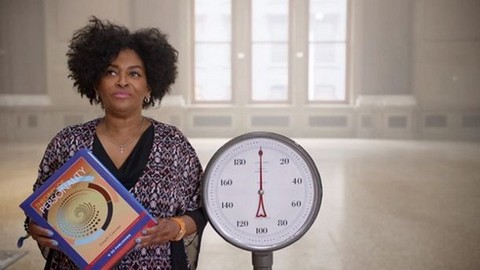In a class action lawsuit* filed in the southern district of New York on Monday, plaintiff Michelle Ross argues that citric acid (which is found in citrus fruits but is typically made on a commercial scale via microbial fermentation) serves as a preservative in several Lean Cuisine frozen entrees featuring ‘no preservatives’ claims, and that shoppers are being defrauded and misled.
“By representing that the products have ‘No Preservatives,’ defendant sought to capitalize on consumers’ preference for less processed products with fewer additives and the association between such products and a wholesome way of life,” argued Ross’s attorneys, who have also filed similar cases against companies including snack food maker Herr Foods Inc** and pickled vegetables maker Kimlan Foods*** .
“ Consumers are willing to pay more for products with no additives because of this association as well as the perceived higher quality, health and safety benefits associated with preservative-free foods ,” says the lawsuit, which alleges violations of state and federal consumer protection laws, and notes that the “ FDA classifies citric acid as a preservative.”
What function does citric acid serve in Lean Cuisine frozen entrees?
On the face of it, the case might therefore seem fairly straightforward; is citric acid a preservative or not? However, as always, the devil is in the detail, as citric acid can serve a variety of different functions in different formulations, and may, for example function as a preservative in fruit snacks, but be used to add a ‘tart’ flavor to candy.
Commenting independently on the matter, Kantha Shelke, PhD, principal at Chicago-based food science and research firm Corvus Blue LLC, told FoodNavigator-USA that “ C itric acid—the free acid (2-hydroxypropane-1,2,3-tricarboxylic acid – as named in the complaint), and the various salts collectively referred to as citric acid—is used in the production of many food products, especially frozen prepared foods, for its function as an acidulant (for flavor or for functionality of another ingredient such as a hydrocolloid or starch), pH control (same as before), flavoring (tartness and a ‘fresh’ flavor), sequestrant (to form complexe with metal ions), as a dispersant in flavor or color additive products, and to wash processing equipment to eliminate off-flavors.
Kantha Shelke: Citric acid can serve a variety of different functions in different formulations
“Citric acid in the Lean Cuisine products bearing the ‘No preservative’ claim may have served any one of the above functions.”
Controlling pH does not serve as a preservation method in frozen entrees
But isn’t controlling pH by increasing acidity a form of food preservation? “ In frozen foods, the subject of this litigation ,” notes Dr Shelke, “ the method of preservation is low temperature and pH does not serve as a preservation method. The reason for controlling the pH of frozen foods is for a number of other reasons including its flavor, how some of the ingredients function …i.e., gel, swell, absorb or bind water, etc., and to affect the flavor, color, etc.”
Typically, indeed, frozen prepared foods do not require preservatives because they are first cooked (whereby heat can kill off unwanted microorganisms) and then frozen (which preserves foods), she added.
It is also notable that where Nestlé USA does describe citric acid on its ingredients lists as a preservative (for example on its Lean Pockets garlic chicken white pizza), it doesn’t make the ‘no preservatives’ claim, which suggests it is well aware of the function that citric acid is serving in different products and has labeled them accordingly and appropriately.
Plaintiff’s attorney: There’s still a case even if citric acid isn’t serving as a preservative in the products
So what if Nestlé USA can simply show that citric acid is not being used as a preservative in the products cited in the lawsuit?
Lean Cuisine has recently undergone a major image overhaul
When snack maker Herr Foods put this argument to attorneys at Lee Litigation Group over the summer (it said citric acid was contributing to the flavor), however, they claimed that the function of citric acid in the entrees is not the issue.
In fact, they argued in an August 26, 2016, letter to US district judge Ann Donnelly, regardless of whether citric acid is actually functioning as a preservative in the products in question, it is nevertheless known to be a preservative, and is recognized by the FDA as such, so ‘no preservatives’ claims are still deceptive.
“The FDA provides that a preservative is a chemical that ‘tends’ to prevent or retard deterioration. It does not state that a preservative is a chemical that ‘is being used by the manufacturer in question for the purpose of’ preventing or retarding deterioration.
“This is consistent with the sensibilities of the health-conscious reasonable consumer wishing to avoid preservatives, whose concerns about these chemicals will not be allayed by the nature of the manufacturer’s motivations. It is also consistent with the allegations in the complaint, which do not depend on the function being served by defendant’s citric acid.”
Attorney: This does strike me as a bit of a ‘gotcha’ claim
So what do food law experts make of these cases?
Angel Garganta, Venable LLP
Angel Garganta, a partner in Venable’s commercial litigation practice group and co-chair of its class action defense group, told FoodNavigator-USA: “ This does strike me as a bit of a ‘gotcha’ claim, and Nestlé USA should indeed be able to argue that it uses citric acid for some other purpose.”
But he added: “Even if citric acid were a preservative and the label is wrong, that begs the question of how consumers were damaged by it, as well as whether and to what extent consumers even relied on the ‘no preservatives’ claim.
“As is the case in so many of these food labeling cases, a mere error in labeling does not necessarily mean that there was consumer deception, let alone that the alleged mislabeling was sufficiently material to, or relied on by, consumers to justify certifying a class, or that plaintiff can quantify damages attributable to the supposed mislabeling.”
Nestlé USA: The allegations are baseless
A Nestlé USA spokesperson said: “ We are aware of the lawsuit, but have not been formally served. The allegations are baseless and we will vigorously defend ourselves. All Nestlé products and labels comply with FDA and USDA regulations.”
*The case is Courtney Ross v Nestle USA Inc 1:16-cv-09563 filed in the southern district of New York
**Hu v. Herr Foods Inc 1:16-cv-03313
*** Hu vs. Golden Orchid Ltd., d/b/a Kimlan Foods USA, 1:16-cv-02234
Source: www.foodnavigator-usa.com




